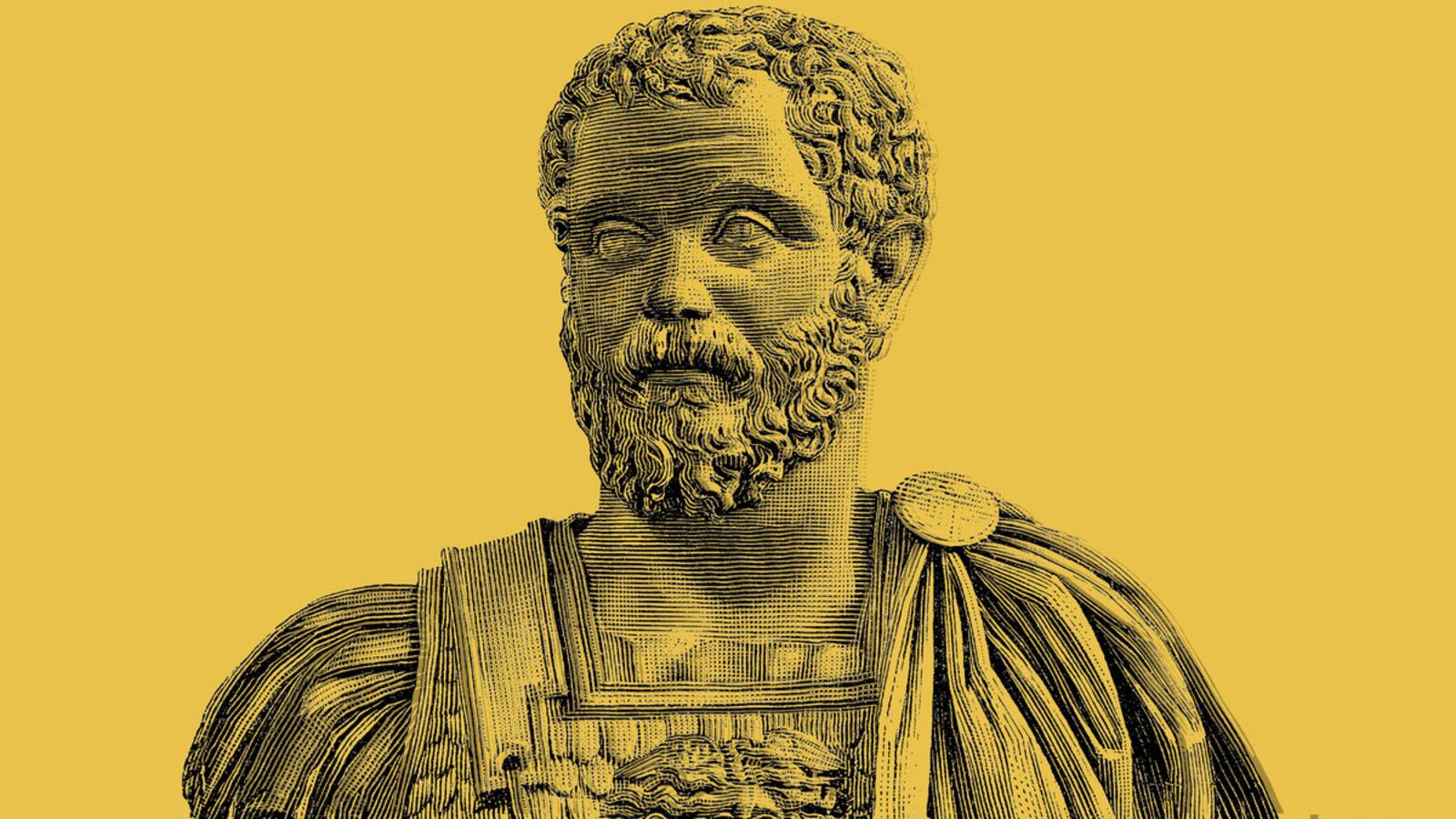Transfers of power are a funny thing. Once a victor has been announced and the dust settles on the hard-fought contest, most people return to their daily lives. But there are some on the losing side who have to worry about their careers, their livelihoods, and—in some cases in the ancient world—their lives. Power struggles bring out the worst in us, and some have to worry about retaliation from a vengeful and out-of-control head of state. In such situations, tact, diplomacy, and olive branches are the tried-and-tested political strategies, but some circumstances demand financial lubrication.
As new evidence from ancient Bulgaria suggests, for those on the political margins of the Roman empire, cold hard cash was the sometimes the only way forward.
The discovery in question is a second-century Greek inscription from Nicopolis ad Istrum (modern Bulgaria). The heavy limestone slab that records the inscription was excavated in the early twentieth century. It was recently restored by archaeologists led by Kalin Chakarov of the Regional Museum of History in Veliko Tarnovo, and subsequently retranslated by Nicolay Sharankov, an assistant professor in the Department of Classical Philology at Sofia University. The inscription itself is a thank-you note from the new emperor Septimius Severus. In the note Severus acknowledges receipt of a generous donation of 700,000 silver coins. As was standard practice at the time, the recipients of the letter had its contents engraved on a large slab of rock (the slab is 10 feet tall and 3 feet wide). It was then publicly displayed so that everyone could read the words of the new emperor.
The bigger question, though, is why the city’s residents felt compelled to make such a generous donation to the emperor at all. There were empire-wide taxes, of course, but this is something different. The IRS doesn’t send us thank-you notes, nor did ancient emperors. Severus’s letter is dated to 198 CE and, according to Sharankov’s translation, states that he accepts their “cash contribution.” In lots of ways this looks like a bribe.
The context for the donation seem to have been the contest for power that consumed the last decade of the second century. The assassination of the increasingly unpredictable—some say insane—Emperor Commodus on New Year’s Eve 192 CE left a power vacuum at the heart of the empire. In the following year, five different political and military leaders competed for power. To say that things were unstable and politically dicey is an understatement. After Commodus’s death, Pertinax was named the emperor, but he rankled the Praetorian Guard (the imperial bodyguards/secret service) when he tried to initiate a program of reforms that revoked some of their privileges. Negotiations between the two failed and the Guard assassinated Pertinax and auctioned off the emperorship to the highest bidder. The winner was the somewhat unpopular Didius Julianus, but within two months he too had been killed and the general Septimius Severus assumed power. Severus swiftly dispatched his remaining rivals.
Like Pertinax and Didius Julianus, Septimius Severus was African. He was born in Leptis Magna in modern-day Libya to a distinguished wealthy family and rose through the political ranks to become governor of Pannonia (a Roman province that overlaps with parts of Croatia, Hungary, Austria, Slovakia, and Slovenia). After assuming power, Severus wasted no time in eliminating the competition and subduing their supporters. He first moved against those who had backed his rival Pescennius Niger. And after that he spent the following three years fighting troops loyal to Clodius Albinus. He finally emerging victorious at the battle of Lugdunum (in modern-day France) in February 197 CE and would proceed to rule for almost two decades.
Against this somewhat turbulent backdrop, it’s easy to see why the people of Nicopolis ad Istrum were eager to demonstrate their loyalty to their new ruler. But it took more than mere words to cozy up to the new dictator. Chakarov told Livescience that it is was Severus’s military success that prompted the citizens “to write a letter to the emperor, begging him for mercy, and bringing him the sum of 700,000 denarii as a gift for their loyalty.” Loyalty, or fides, was what Roman rulers most prized from people. Severus magnanimously responds that he is happy to accept the gift from those who “had taken ‘the right side’.” He even praises the people for their “zeal” and writes that they have demonstrated that they “are men of good will and loyalty and are anxious to have better standing in our judgment.”
In further underscoring his claim to authority Severus describes himself in the letter as an heir to Marcus Aurelius, the great philosopher emperor who had ruled before and alongside Commodus. Though Severus was not, in fact, biologically related to Marcus Aurelius, it was common for Roman emperors to adopt their successors and Severus was leaning into that tradition. Just as today political candidates might link themselves to beloved former-Presidents, Roman emperors built up their own authority and status by emphasizing their ties (real or invented) to deceased good rulers. ‘In case you were wondering,’ he seems to say, ‘I’m here for the long haul.’
Of course, it would be wildly inappropriate for politicians to try to bribe their way into the good graces of the new head of state today. But different times call for different gestures. Outgoing President Donald Trump reportedly introduced loyalty testing to gauge the support of potential appointees. The fallout from the election, too, has repeatedly been cast by Trump and his supporters as a question of loyalty (rather than principle). The same fears and questions that plagued ancient Roman power-contests continue to haunt modern politics.








